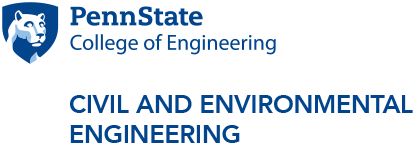WARR Seminar Series: Hydrological Data Synthesis to Understand Streamflows
Abstract: New opportunities abound to use big data and machine learning techniques to understand and manage water resources at large scales. By developing and analyzing large hydrologic data sets, we can move from watershed specific knowledge towards regional or continental scale conclusions.
Applications that call for large-scale hydrologic knowledge include building continental scale hydrologic models, and developing national approaches for water quality management. To achieve these goals, we need to synthesize and share hydrological process knowledge. This seminar will discuss how a taxonomy can be used to compare and search processes, how perceptual models (figures that illustrate watershed behavior) enable us to share process knowledge, and how streamflow dynamics can be used to predict processes in the upstream watershed. These approaches move towards large sample learning about hydrologic processes, and the ability to predict dominant processes in watersheds without extensive measurements.
Streamflow data are critical for watershed modeling and to synthesize management outcomes, yet there are significant gaps in our national-scale gaging networks with biases towards large perennial rivers. National networks may be augmented by existing smaller gaging networks, but data from smaller networks are highly distributed and challenging to obtain. Stakeholder engagement is needed to identify and compile this valuable streamflow monitoring data, and to understand the quality and limitations of these distributed monitoring networks. This seminar provides insights gathered from engagement with the water resources community at local and state scales, highlighting the challenges that water professionals face in collecting and managing quality streamflow data, the utility of having centralized water data, and paths forward for improved access to diverse datasets. This effort has coalesced information about ~600 active continuous monitoring stations in the Pacific Northwest outside of the USGS network, doubling the available streamflow data.
By presenting both the value of hydrologic data synthesis, and the practical efforts required to obtain high-quality data sets, we show how the hydrologic community can promote large-scale modeling and management applications and support decision-makers tasked with water resources planning.
Bio: Hilary McMillan is Professor of Water Resources in the Geography Department at San Diego State University. Hilary and her students study hydrology and water resources in a range of landscapes from pristine mountain headwaters to highly modified urban catchments. She focuses on the value of many types of hydrologic data to improve understanding of hydrologic processes and build accurate quantitative models to predict river flow, soil moisture, groundwater recharge and other quantities.
Bio: Kendra Kaiser is an Assistant Research Professor in the Department of Geosciences at Boise State University. She is a watershed hydrologist that focuses on applied research questions that she co-produces with regional stakeholders. She uses field data collection, remote sensing and other diverse data sources to create statistical models and data visualizations to improve our understanding of working western watersheds. Through this work, she seeks to help water managers and users across agricultural and urban environments adapt to our changing climate.
Event Contact: Li Li



